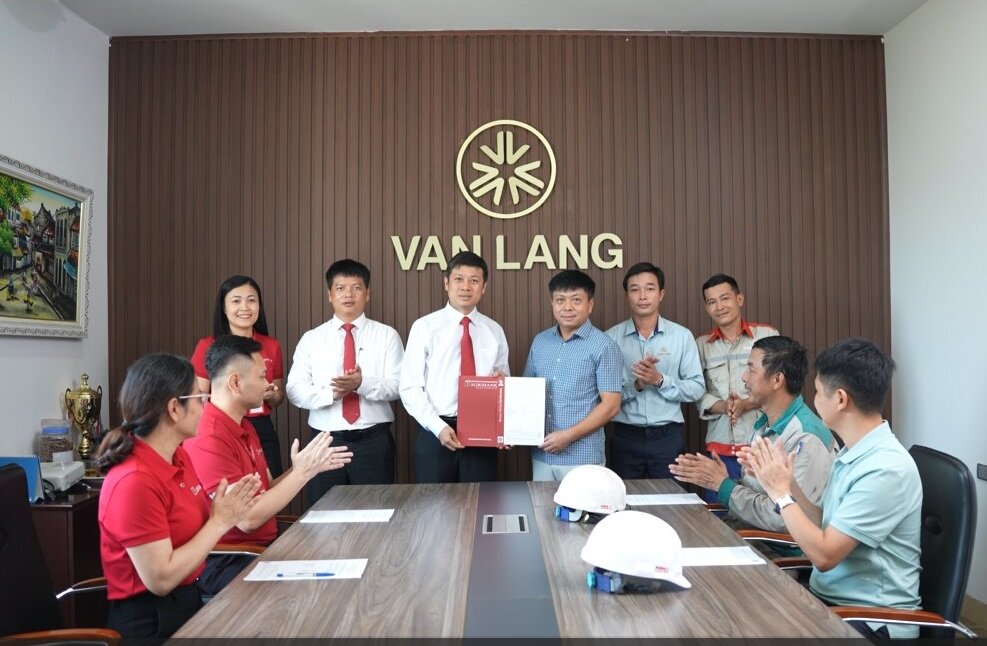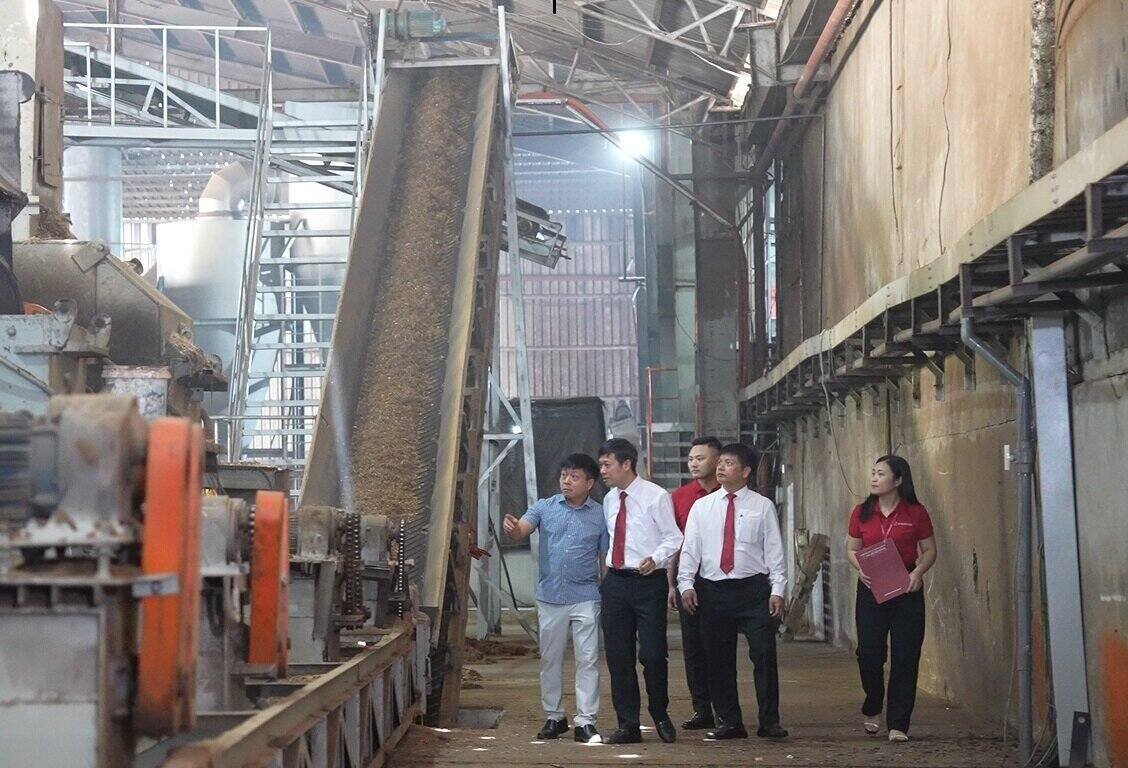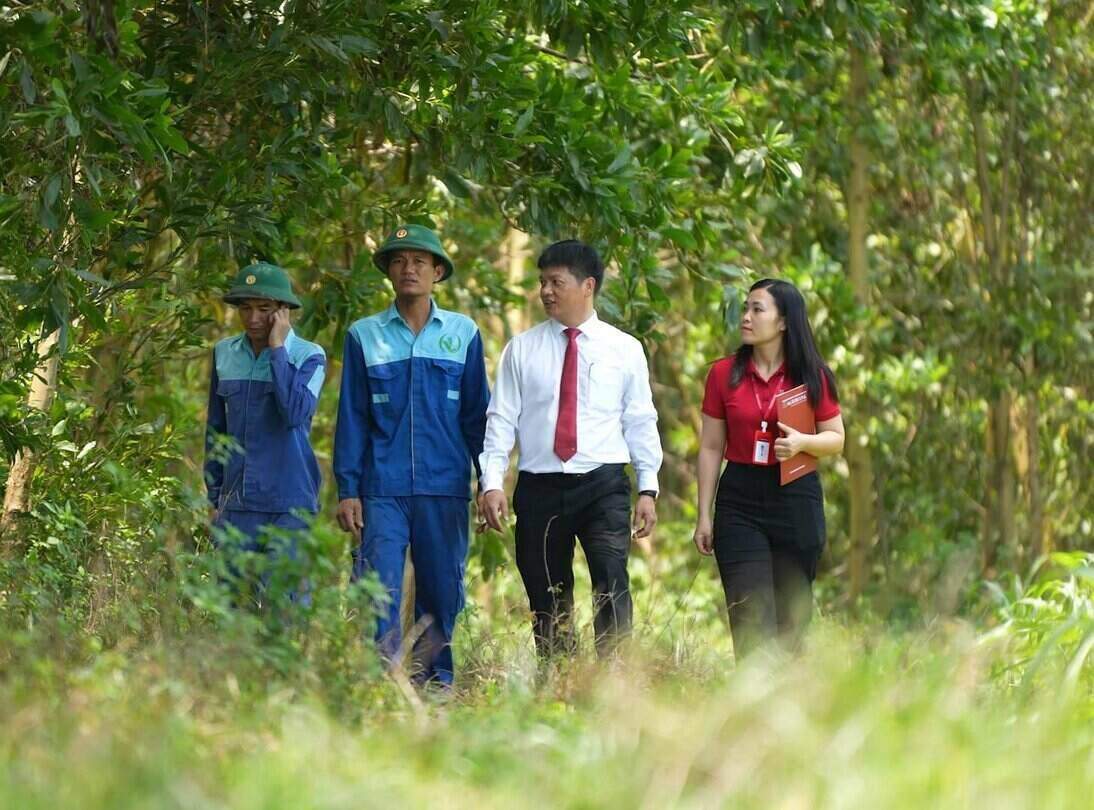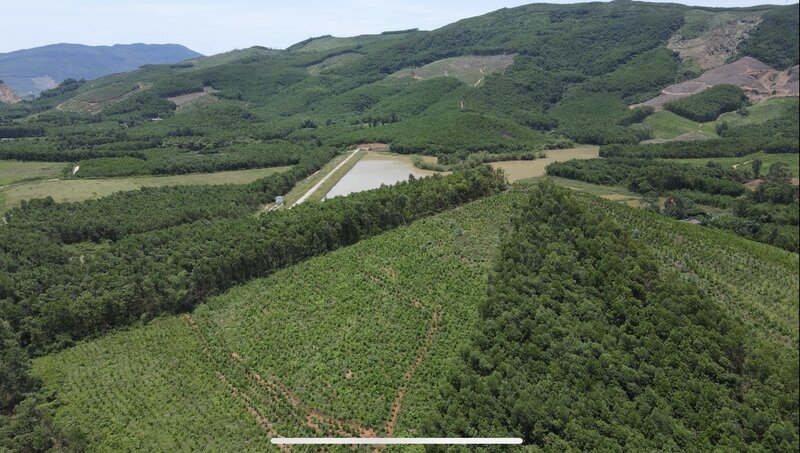From biomass wood credit to carbon opportunities
Vietnam is the first country in the East Asia - Pacific region to receive a payment of 51.5 million USD for carbon emission reduction based on the results from the World Bank's Forestry carbon Partnership Fund (FCPF). This amount of money benefits 70,555 forest owners and 1,356 communities living near forests in 6 provinces, divided according to a transparent plan, ensuring fairness and the participation of many stakeholders. This has shown how "invisible assets" of carbon credits can become a sustainable source of income for both the community and the country.
With 14.7 million hectares of forest, tropical climate and rapid crop growth, Vietnam is facing a special opportunity: from a country with potential, Vietnam can rise to become a leading carbon credit supplier in the region. However, to turn potential into reality, the prerequisite is long-term, sustainable capital flows, helping businesses invest in technology, infrastructure and meeting strict international standards on certification and data transparency.
In that context, Agribank has pioneered in accompanying businesses. Signing credit contracts with Van Lang Yufukuya Company and Lam Thanh Hung Company in Thanh Hoa not only provides financial resources but also adds confidence for businesses to boldly pursue green projects, contributing to building a carbon economy.

Located in Nghi Son Economic Zone, Van Lang Yufukuya Company Limited specializes in the production of wood chips and wood tablets, two items with great demand in Japan, Korea and Europe to serve the production of biomass energy. Since 2020, Agribank has accompanied this enterprise with a credit limit of VND 200 billion, and has so far disbursed VND 161 billion. Timely disbursement helps Van Lang maintain the raw material supply chain, ensure export progress, and at the same time have more resources to expand the market and upgrade the wonco wood processing line.
Notably, Van Lang only purchased raw materials from units with FSC (Forest Stewardship Council) certificates and made direct payments for each imported shipment. This not only meets the requirements of transparency and sustainability of the market but also affirms the long-term development orientation associated with international standards.
Unlike Van Lang, Lam Thanh Hung Company Limited is headquartered in Tuong Linh commune, focusing on the production of wood chips and alloy board. The enterprise was granted a credit limit of 80 billion VND by Agribank and has fully disbursed. This capital has helped the company expand production, while improving competitiveness in the international market.
A special feature is that Lam Thanh Hung manages 700 hectares of forest in 4 communes of Cong Liem, Cong Chinh, Tuong Son, Tuong Linh (Nong Cong district, Thanh Hoa). This is a leased area from 258 households, and the company has fully paid the forest rental fee, and continues to pay directly to households every time raw materials are imported. This model not only ensures stable supply but also creates income for local communities, building a fair benefit sharing mechanism, an important factor for sustainable development.
At first glance, the loans to Van Lang and Lam Thanh Hung are like credit loans for traditional wood production. But in fact, this is an important link in the carbon value chain. From raw forest planting, wood processing to export, each activity contributes to CO2 absorption and creates emission reduction that can be measured, reported and verified (MRV). When meeting international standards, this emission reduction will be certified as a carbon credit and can be sold on the market voluntarily or voluntarily.
Thus, Agribank's credit not only helps maintain production activities but is also a " lever" for Vietnamese enterprises to enter a global carbon market worth hundreds of billions of USD. This is a testament to how commercial banks can become a "connector" between the traditional agricultural economy and the green economy of the future.

Mr. Lang Van In, Chairman of the Board of Members of Van Lang Yufukuya Company Limited, shared: The loan from Agribank is the key to helping us invest in the biomass wood processing line and develop afforestation projects. Despite policy advantages with the support of Decree 06/2022/ND-CP and Decision 888/QD-TTg, we still face many challenges: high MRV monitoring costs, complicated international certification procedures, and data transparency pressure. Without the support of Agribank, we would have had no way to go this far.
Agribank's capital not only helps businesses maintain production but is also a stepping stone for them to participate in the green economic sector, where the value comes not only from wood products but also from reduced emissions. Thanks to that, unionside credit does not stop at nurturing the forestry industry but also opens a "door" for Vietnamese enterprises to exploit the benefits of carbon credits, an invisible asset that is increasingly valuable.
From Lam Thanh Hung's side, the business representative also emphasized: "Cital support not only helps them maintain the processed forest planting chain but also opens up access to the potential carbon credit market in Japan, the EU and South Korea. We believe that carbon credits will become a sustainable source of income alongside traditional wood products, thereby creating a solid financial foundation.
Creditout Certificate Gradually affirms its position in the global carbon value chain
Obviously, Agribank's timely capital allocation has helped the enterprise meet international standards, stabilize production flows and maintain prestige with foreign partners. Thanks to that support, not only Van Lang Yufukuya or Lam Thanh Hung but also Vietnamese wood businesses are having the opportunity to expand not only the commodity export market but also enter the international "playground" of carbon credits - a market worth more than 900 billion USD in 2024 and continue to grow.
If businesses "create" carbon credits, the bank is the "connector" to help that product enter the market. As a leading financial institution in the agricultural and rural sectors, Agribank understands more than anyone the full potential of Vietnamese forests in the global carbon value chain.
Agribank's funding of capital for businesses not only contributes to promoting clean production, but also directly supports the national goal of Net Zero 2050. This is also an opportunity for Agribank to expand its credit portfolio to the carbon Finance sector - a potential segment, helping to increase income from service fees, guarantees, international payments, while enhancing the image of a green, sustainable banking brand.

In particular, when businesses have more stable revenue from carbon credits, banks also benefit from consolidated debt repayment capacity, minimizing credit risks. This is a both-bank- profitable relationship, in which Agribank both fulfills its social responsibility and increases competitive advantage in the financial market.
Not only stopping at credit, credit projects require a modern monitoring, reporting - auditing (MRV) system, digital and transparent data. This is the "gateway" for Agribank to promote its digital transformation strategy, provide cross-border payment solutions, cash flow management and digital banking services to customers. Thus, a green credit loan also opens up many other modern financial services, closely connecting businesses with banks.
From the credit buyer, initial assessments show that transactions from Vietnam are increasingly being accepted. A representative said: "The credits we buy from Vietnamese enterprises all meet the legal basis, technical standards and environmental values. This is a source of high-quality credits that can be retried or used right in emission reduction commitments. More importantly, it contributes to affirming the reputation of both sellers and buyers in the international market.

This proves that not only businesses and banks benefit, but the international market also highly appreciates Vietnam's efforts. Each successful transaction not only brings in revenue but is also a "crediting certificate" that helps Vietnam gradually affirm its position in the global carbon value chain.
It can be seen that the international carbon market is opening a "highway" for the green economy, but only those with enough capacity can step on this runway. As the largest state-owned commercial bank with a wide network, Agribank is a strategic bridge for Vietnamese carbon credits to reach the world.
That journey not only requires capital flow, but also requires companionship in technology, governance and above all, strategic vision. Agribank, with its ESG commitment and the mission of "Banking for the Community" is proving that green finance is not a slogan but a practical action to help businesses improve their capacity, the country fulfills its Net Zero commitment and Vietnam will firmly step on the global carbon map.











